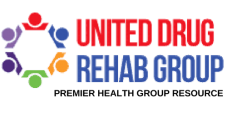Drugs and Lost Productivity
Drug use usually begins modestly enough. Someone may try cocaine at a party, and then use it recreationally on the weekends. But over time, their tolerance increases, or they have a bad day at work, so they use it during the week. Then it’s twice a week, and eventually they’re using cocaine every day. The drug use starts to take a toll on their career, forcing them to call in sick or let some projects at work slide, but they’re afraid or unwilling to seek help at an addiction treatment center. One of the unforeseen side effects of addiction is the cost to businesses. A whopping $263 billion is lost each year due to addiction- or drug-related lost productivity, absences, and injuries.
It’s easy to see how drug use or full-blown addiction could lead to lost productivity. Someone who’s high at work will not function at their best capacity, and their decision-making and efficiency will be compromised. The aftermath of taking drugs can also be detrimental to workplaces; someone who comes into work with a hangover won’t be able to be productive or focused. Side effects of drug use, such as insomnia or anxiety, can also chip away at productivity, while obsessive thoughts about using will only distract workers. Overall, a decline in productivity costs businesses incredible amounts of money each year.
In addition to lost productivity, drug use or addiction is responsible for employees missing 500 million workdays each year. Flu-like withdrawal symptoms can keep a worker bedridden for days, while the need for another hit might prompt employees to skip work in order to find their dealer. According to the Office of National Drug Control Policy, full-time employees who use drugs are twice as likely to skip at least one day of work per month than non-users. Over time, these absences add up to high costs for employers.
Finally, drug use contributes to accidents and injuries in the workplace. Again, it’s understandable why. A drug-clouded mind doesn’t lend itself to the best reaction times or judgment, and can cause normally responsible employees to make mistakes or even hurt others. Alcohol is a particularly heinous culprit when it comes to accidents; employees who drink heavily are almost three times as likely to be absent at work due to an injury on the job.
Despite these issues, many employees are afraid of coming forward with their addiction. How should workplaces respond to employees who use drugs? Because turnover and training ultimately cost more time and money, the best option is to send employees to addiction recovery facilities to recuperate and eventually return to work. These employees are usually subject to drug tests and increased oversight once they return, but they also tend to be grateful for the opportunity to return to work. Helping employees to get treatment in drug rehab allows them to return to normalcy and stability. If you or someone you love is addicted to drugs or alcohol, please email or call United Drug Rehab Group to learn about our luxury drug rehab program, where clients recover in privacy and comfort. Please contact us today to help change a life.


